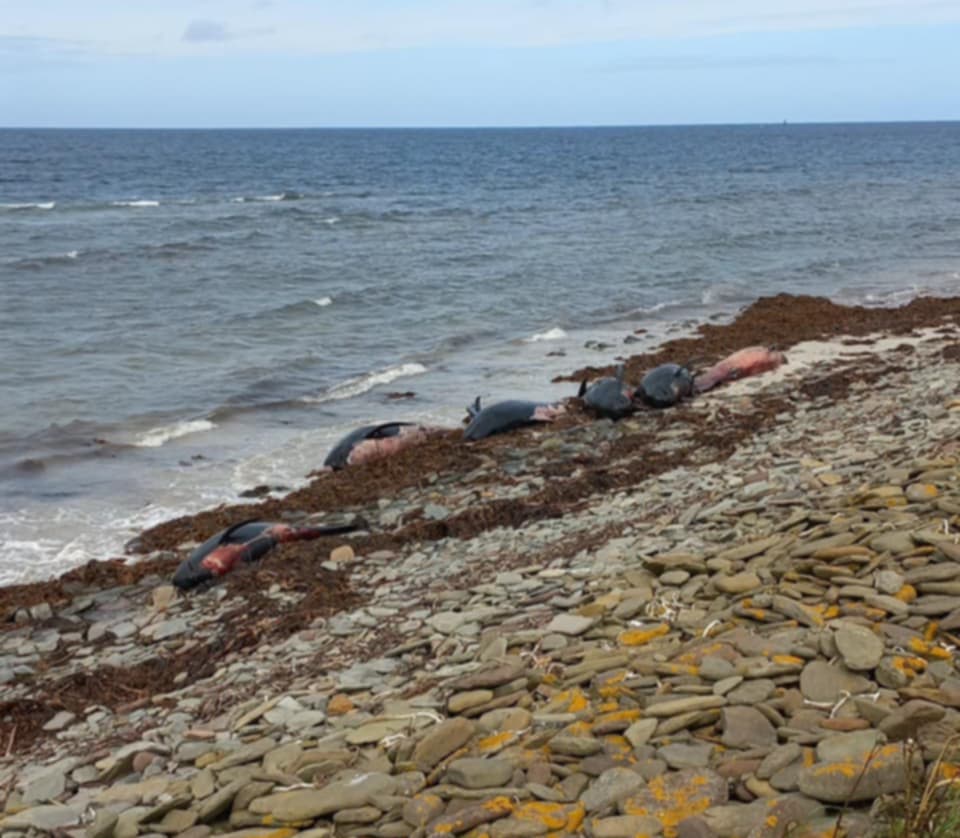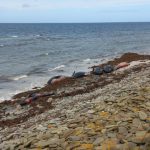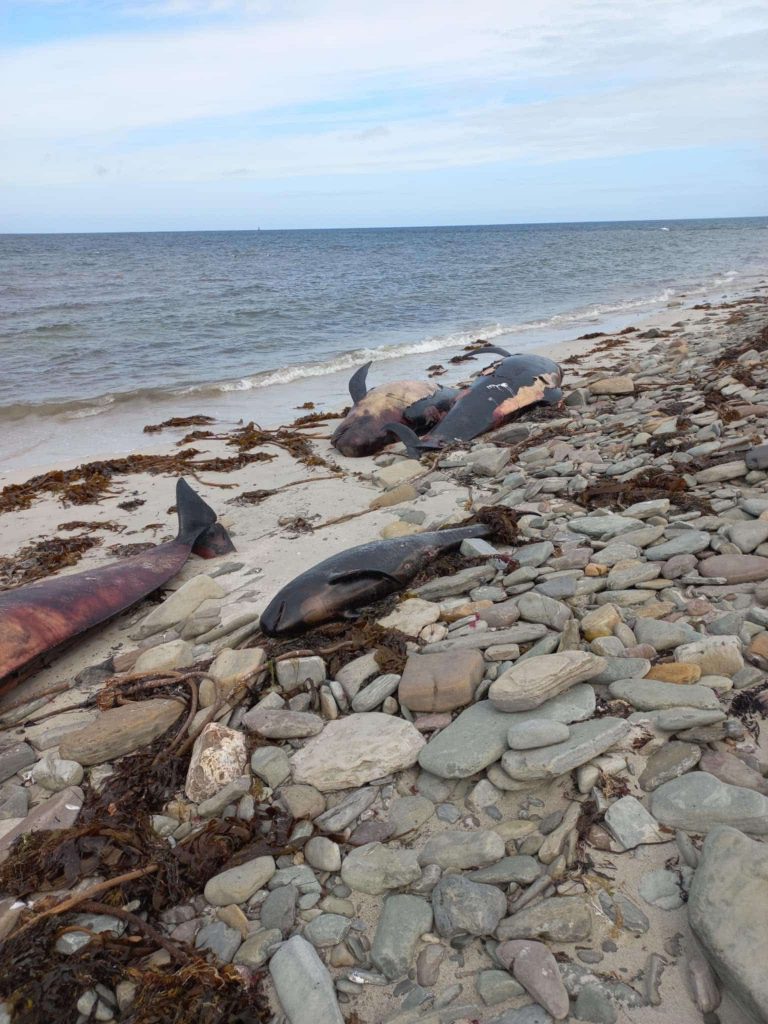

Samples collected from stranded Sanday whales

Lone pilot whales spotted in Westray and North Ronaldsay recently are “almost certainly” members of a pod of 23 found ashore on Sanday today.
This is according to Emma Neave-Webb, a strandings co-ordinator who was one the first on the scene at Roo Beach, this Sunday afternoon, after the whales were discovered.
Speaking to The Orcadian after a five-hour-long effort to collect samples from the pilot whales, she recalled last year’s devastating incident, which saw 77 strand at another beach in Sanday.
“It’s pretty much 13 months to the day since the big one last year,” said Mrs Neave-Webb, who has found her expert skills put to good use as a resident of Sanday.
She said that this incident had been less complicated, in that all the whales were dead by the time of their discovery. This meant that the efforts of Scottish Marine Animal Stranding Scheme (SMASS) volunteers were purely focused on recovering as much material as possible to aid investigations into its cause.
“It’s not a nice sight,” said the strandings co-ordinator, who was part of a team of six collecting samples from the animals.
“You are getting up close and personal with them and taking samples — so that we can learn as much as we can.
”It’s tiring, and very physical as well.”
DNA samples have now been collected from all 23 whales, and these will be sent to Inverness for analysis, which could take months to complete.
Mrs Neave-Webb suspects that the whales came ashore a few days ago, and were only discovered by chance due to their remote location.
As a result, they are already decomposed to the point that some analysis is impossible. Volunteers were able to make some basic assessments however.
“None of the whales were showing any signs of injury,” said Mrs Neave-Webb, who believes that members of the pod were well-fed and in good physical condition prior to stranding.
“It’s not always easy to tell what causes a stranding,” she added.
“With this pod, we will probably never know.”
Information which has been collected will provide an invaluable insight, however, into the species, as will findings of an investigation into last year’s incident.
Mrs Neave-Webb is grateful for the “community effort” that has emerged once more in response to this stranding.
“You know what the community is like here — there have been so many offers of help,” she said.
Roo Beach, which is near Whitemill Bay, is likely to prove inaccessible by boat and difficult to reach by tractor. It is understood that Orkney Islands Council is considering disposal options for the pod.